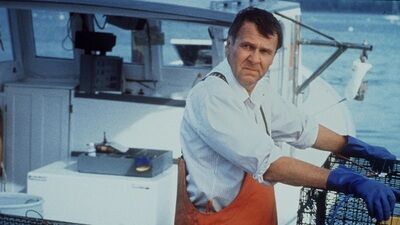A child of Leeds, Thomas Wilkinson grew up on a farm before briefly moving to British Columbia at the age of 11, returning to the U.K. only five years later. He graduated from the University of Kent at Canterbury, where his love of acting was born, carried to the Royal Academy of Dramatic Art in London, one of the most esteemed theater schools in the world.
It wasn’t long before that education paid off, working with the legendary Andrzej Wajda in 1976 before playing Horatio in a West End production of Hamlet in 1980. He was a stage presence for much of the ‘80s, using that acclaim to transition to several British TV appearances.
He didn’t really become a film presence until relatively late in life, starting with a small role in “In the Name of the Father” in 1993 and then slightly bigger parts in “Sense and Sensibility” and “Ghost and the Darkness.” His breakthrough came in 1997’s “The Full Monty,” for which he won the BAFTA for Best Supporting Actor. He essentially worked non-stop from that point until his death, and that’s when it became clear how versatile he was as a performer. He segued from a Best Picture winner like “Shakespeare in Love” to “Rush Hour” and it didn’t feel awkward at all.
His richest film performances came in the 2000s, producing one of the best resumes from that decade anywhere. He was clearly coveted by filmmakers, working with Christopher Nolan, Todd Field, Woody Allen, Julian Fellowes, Michel Gondry, Guy Ritchie, and so many more. He was essential to the success of “Michael Clayton,” for which he landed an Oscar nomination, and he was a fixture in Prestige TV, appearing in HBO’s “Normal,” “John Adams,” and “Recount.” He also appeared in “Eternal Sunshine of the Spotless Mind,” “Batman Begins,” “Girl with a Pearl Earring,” and “Valkyrie.” Perhaps his best performance came in 2001’s “In the Bedroom,” finding layers of grief that felt raw and true. He was named Best Actor by the New York Film Critics and nominated for the Oscar.

